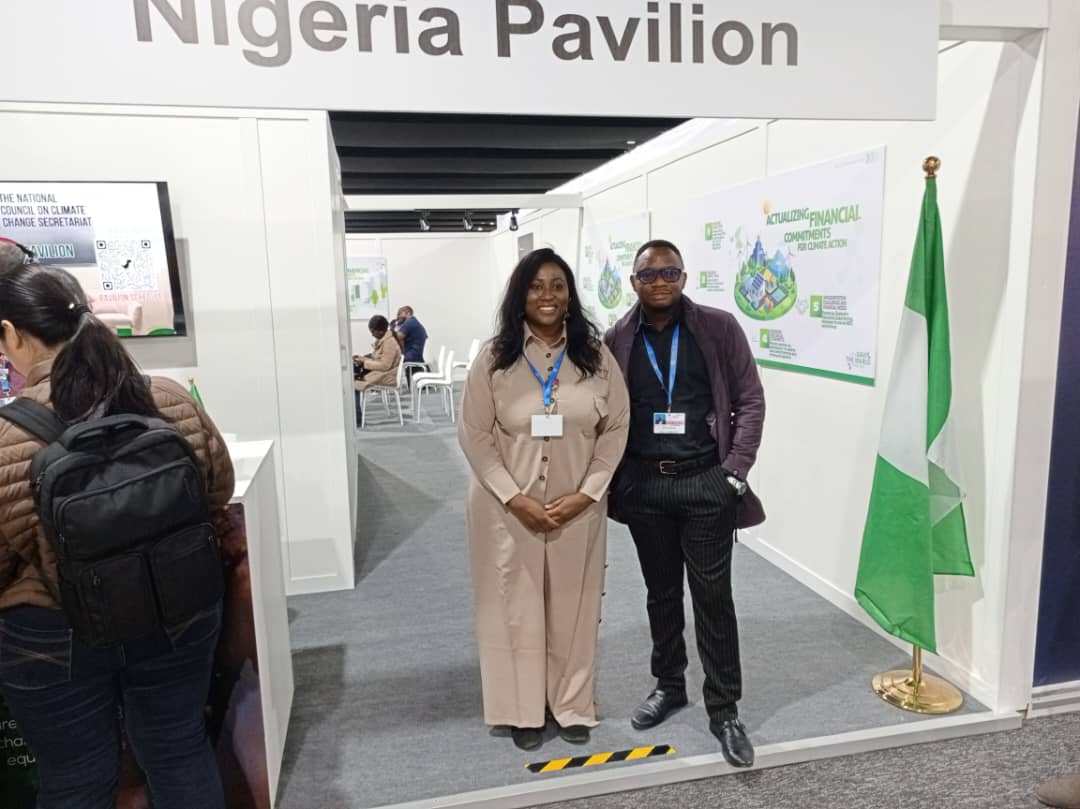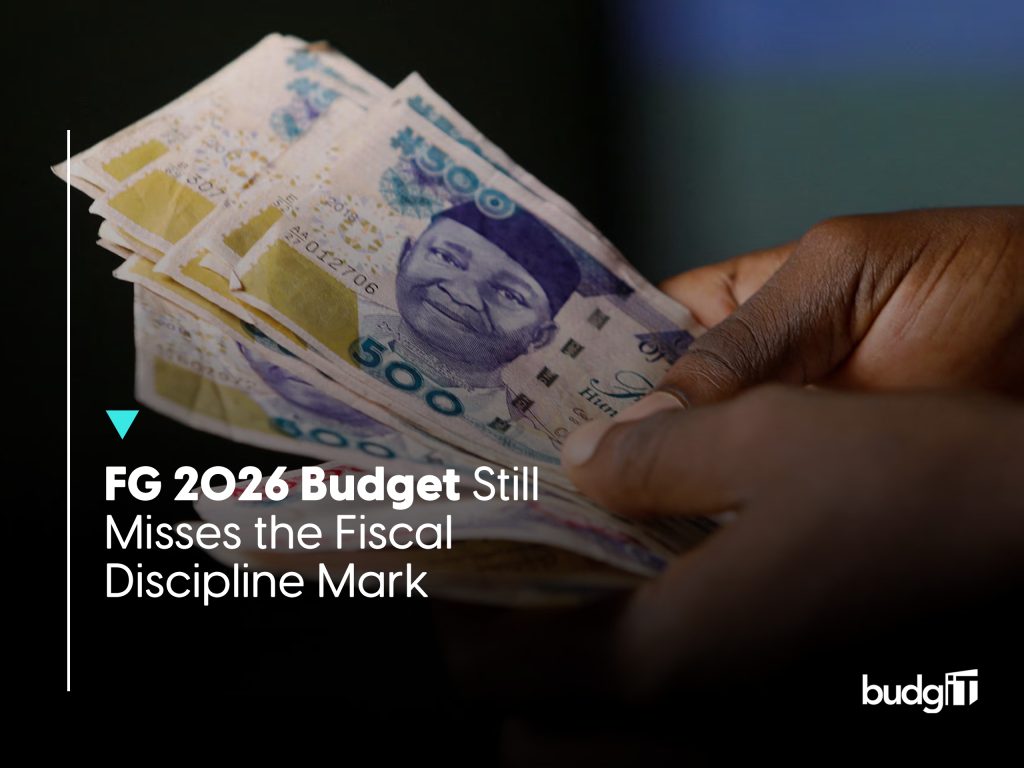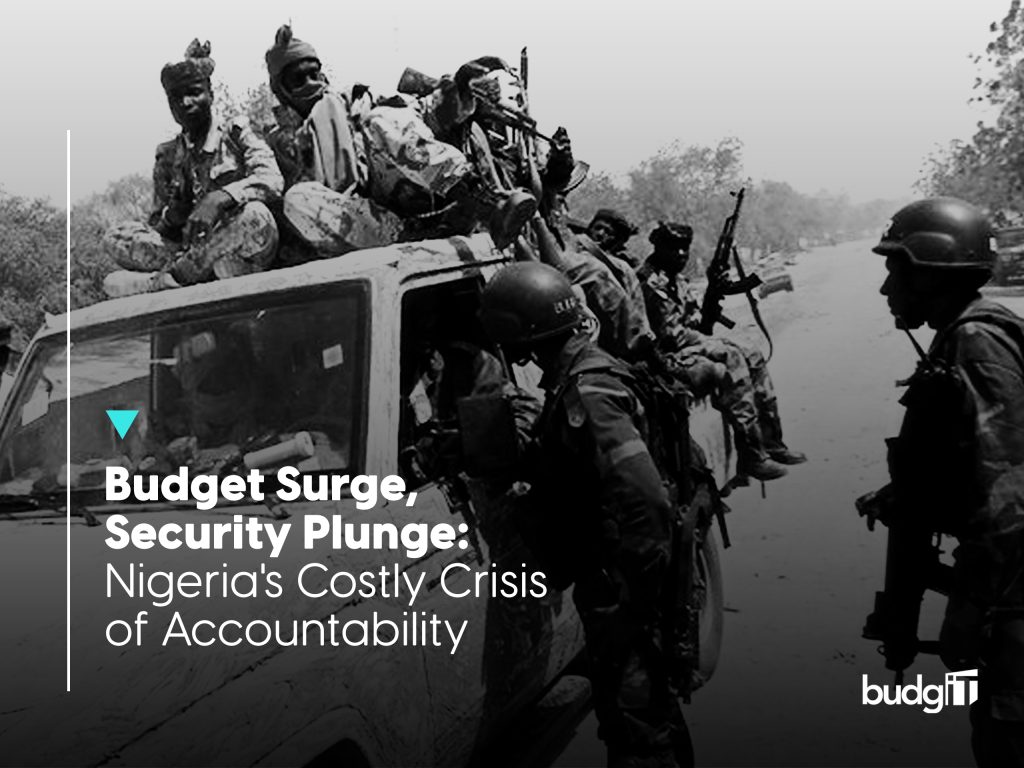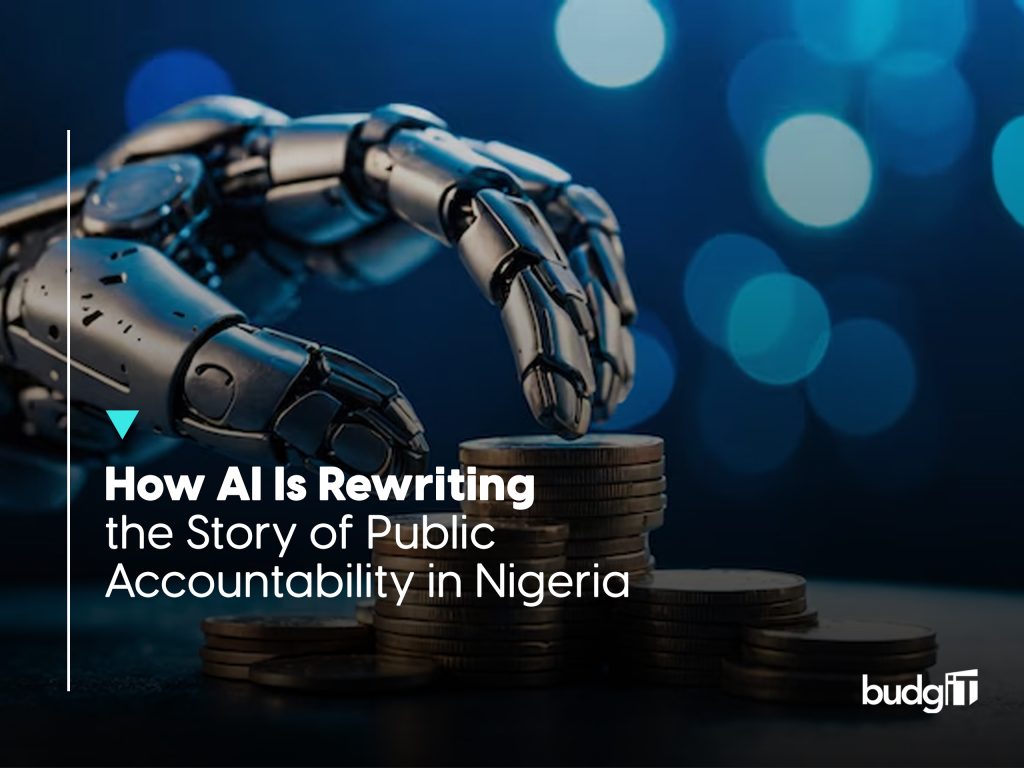The 2024 United Nations Climate Change Conference in Baku, Azerbaijan, was pivotal for robust discussions and outcomes on critical issues such as climate finance, carbon markets, and the urgent transition from fossil fuels. While commitments were made, the conference underscored the persistent challenges faced by developing nations like Nigeria, which grapple with significant climate finance shortfalls and heightened vulnerabilities.

At this landmark 29th edition of the Conference of Parties (COP29), held in November 2024, BudgIT actively engaged with key stakeholders, including the Global Methane Hub and the Natural Resource Governance Institute, to champion effective climate governance and accountability. This year’s conference emphasised the need to bolster global commitments to reduce greenhouse gas emissions and promote sustainable practices within the energy sector.
As the impacts of climate change escalate worldwide, developing countries like Nigeria confront formidable challenges, including severe weather events and resource-related conflicts. COP29 provided a crucial platform for nations to explore strategies for mitigating these effects and securing essential financial support for climate initiatives. Significant discussions focused on increased climate finance, particularly for vulnerable nations facing significant environmental challenges. At the same time, workshops emphasised the importance of transitioning to clean energy and the financial mechanisms required to support this transition.
This report summarises the key outcomes and discussions from COP 29 and emphasises its importance in the global climate agenda.
BudgIT Engagements and Activities at COP29
National Oil Companies and Energy Transition Press Conference
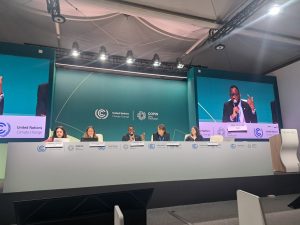
In collaboration with the Natural Resource Governance Institute, BudgIT held a press conference highlighting the need to include national oil companies in global energy transition plans and commitments, as they account for 55% of worldwide oil and gas resources. Enebi Opaluwa, BudgIT’s head of Natural Resources and Climate Governance, provided perspectives on Nigeria’s decarbonisation goals amidst gas expansion plans and the role of the NNPC Limited in government plans. While specific measures have been put in place to reduce emissions such as short-lived climate pollutants, fugitive methane emissions and reduction of gas flaring, it is evident that the government is still actively pursuing the expansion in the production of both crude oil and natural gas as well as broadening the domestic consumption of gas. The challenge remains to see how emission cuts can be achieved amidst hydrocarbon expansion.
Engagements at the Methane Action Hub with the Global Methane Hub
BudgIT also participated in discussions at the methane action hub with partners of the Global Methane Hub, focusing on strategies to reduce methane emissions—a potent greenhouse gas—where we shared insights on Nigeria’s methane emissions sources and developed actionable mitigation plans. Activities included the official launch of the International Methane Emissions Observatory (IMEO) 2024 report, Eye on Methane, and the Methane Alert Response System (MARS) presentation. In a panel session, Prof. Nkiruka Chidia Maduekwe, Director General of the National Council on Climate Change, Nigeria, outlined Nigeria’s efforts at reducing Methane Emissions in energy, agriculture and waste management sectors.
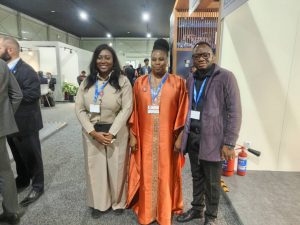
The United Nations Global Compact
Similarly, BudgIT attended the United Nations Global Compact side event with various international organisations, where we strengthened our commitments to increase knowledge and awareness of climate financing available to developing countries and promote a just energy transition.
Engagement with the Osun State Government
In its efforts to combat climate change, the Osun State government held a side event that focused on how the government is transforming a dumpsite at Onibueja, Osun State, into a sustainable urban park to reduce methane emissions and contribute to purifying the surrounding air.
Efforts are being made to educate the public, especially young people, about climate change. The government also discussed its plan to implement other climate adaptation and mitigation programs in the future through partnerships with relevant stakeholders.
Civil Society Equity Review
BudgIT joined the Civil Society Equity Review to launch its 2024 report at COP29, with various CSOs attending worldwide.
The report emphasised the need for the Global North to contribute its fair share to the phaseout of fossil fuels and climate financing, which is currently not the case.
NDC targets and climate finance contributions by countries in the global north are far from what is fair compared to the extent of emissions from those countries. The Global North must stop hiding behind the unavailability of public funds to fund climate action, and fossil fuels phaseout while shifting action to the private sector or the Global South.
Challenges and Recommendations
- Chaotic negotiations and accusations of inadequate inclusion from various countries highlighted the need for improved negotiation processes.
- Diplomatic tensions, including Argentina’s withdrawal and France’s climate minister’s opt-out, exemplified the challenges faced during the conference.
Recommendations for Future Actions
- Strengthen regional financing mechanisms, such as ECOWAS, to enhance support for climate initiatives.
- Boost private sector participation through de-risking strategies to attract investment in clean energy.
- Promote transparency through an Enhanced Transparency Framework to build trust among stakeholders.
- Simplify access to climate finance to ensure that vulnerable nations can effectively respond to climate challenges.
COP 29 underscored the complexities of international climate negotiations, illustrating the friction between fossil fuel interests and the urgent need for climate action. The outcomes reflect progress and setbacks, setting the stage for future discussions at COP 30. The issues faced by countries like Nigeria exemplify the broader financial and environmental challenges that must be addressed to achieve meaningful climate goals.
BudgIT reiterated its commitment to fostering transparency and accountability in climate finance. Through our Natural Resource and Climate Governance team, collaborating with the service delivery arm, Tracka, we are evaluating the effectiveness of climate projects to ensure that resources are used efficiently for the intended communities.
Significant Global Commitments at COP 29
- Climate Finance Goals
Developed nations committed to providing at least $300 billion annually to developing countries by 2035. This commitment was met with disappointment, as developing countries sought a target of $1.3 trillion per year [3].
This commitment is particularly significant for countries like Nigeria, which reported a climate finance gap of $27.2 billion for 2021-2022, receiving only $2.5 billion. Nigeria also faced losses of $6.7 billion from flooding in 2022 while subsidising fossil fuels by $9.3 billion.
- Carbon Markets
Agreement was reached on the remaining sections of Article 6 of the Paris Agreement, finalising regulations for international carbon trading, which are crucial for meeting global climate targets [3].
- Fossil Fuel Transition
There was no consensus on advancing the transition away from fossil fuels, with this issue deferred to COP 30 in Brazil, reflecting ongoing tensions between fossil fuel dependency and the urgency of climate action [3].
- Accusations of Conflict of Interest
Azerbaijan faced criticism regarding its role as host due to its heavy reliance on fossil fuels, raising concerns about potential conflicts of interest in negotiations [3].
- Attendance and Participation
Over 65,000 delegates registered for COP 29, with Azerbaijan having the largest delegation. The presence of many fossil fuel executives raised concerns about the influence of the fossil fuel industry on climate negotiations [3].
